Kefir soaps for healthy and nourished skin
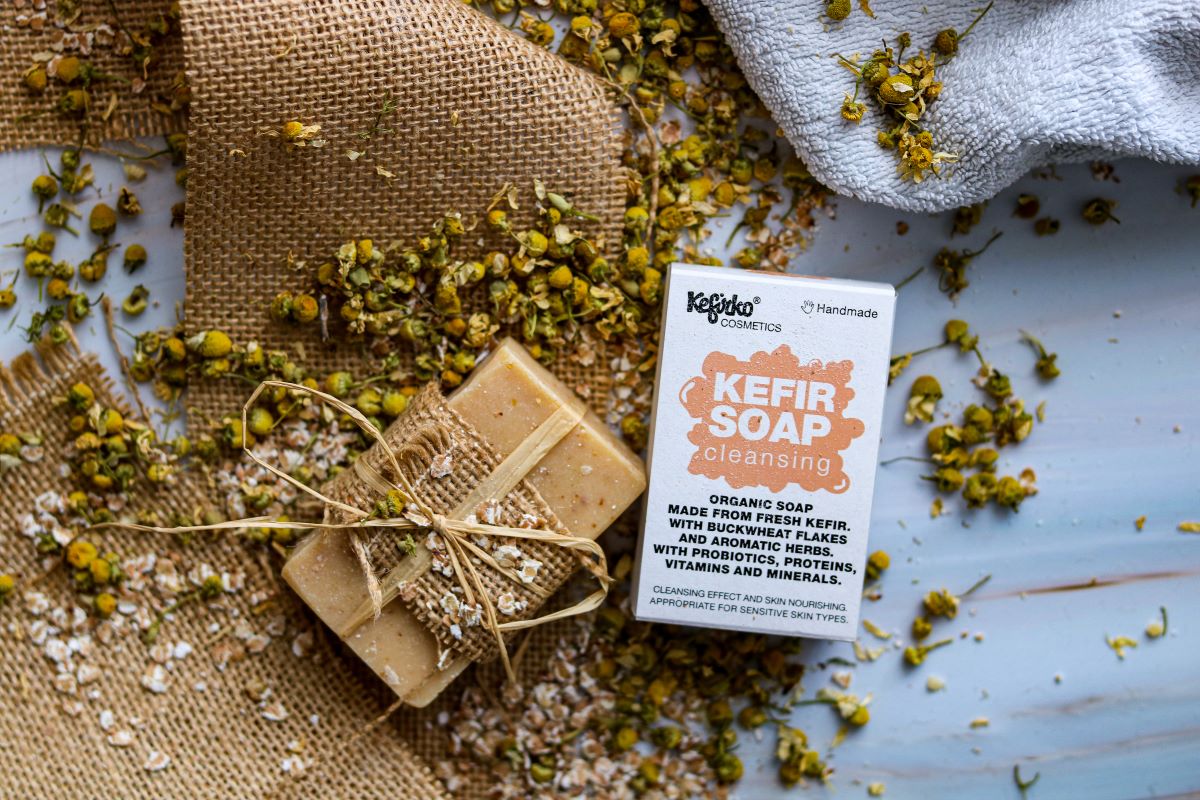
Fermented foods, such as homemade kefir, can benefit the microbiota by enhancing its function and reducing the abundance of disease-causing bacteria in the intestines.
But how can kefir soaps protect good bacteria on our skin?
The human body is home to trillions of microorganisms, outnumbering even the human cells.
Over 1,000 species of these diverse bacteria ecosystems reside on our skin. And research shows that some of these microbes actually promote skin health. They reinforce our skin’s natural barrier against bad bacteria. Balance our skin’s pH levels and may even protect against skin cancer. But constant use of harsh facial cleansers and antibacterial soaps strip our skin of these healthy bacteria or the ‘good bugs’. Consequently this is damaging our skin’s natural bacterial ecosystem. This, in turn, makes our skin stressed and dry, causing skin issues like breakouts, eczema, rosacea flares and psoriasis.
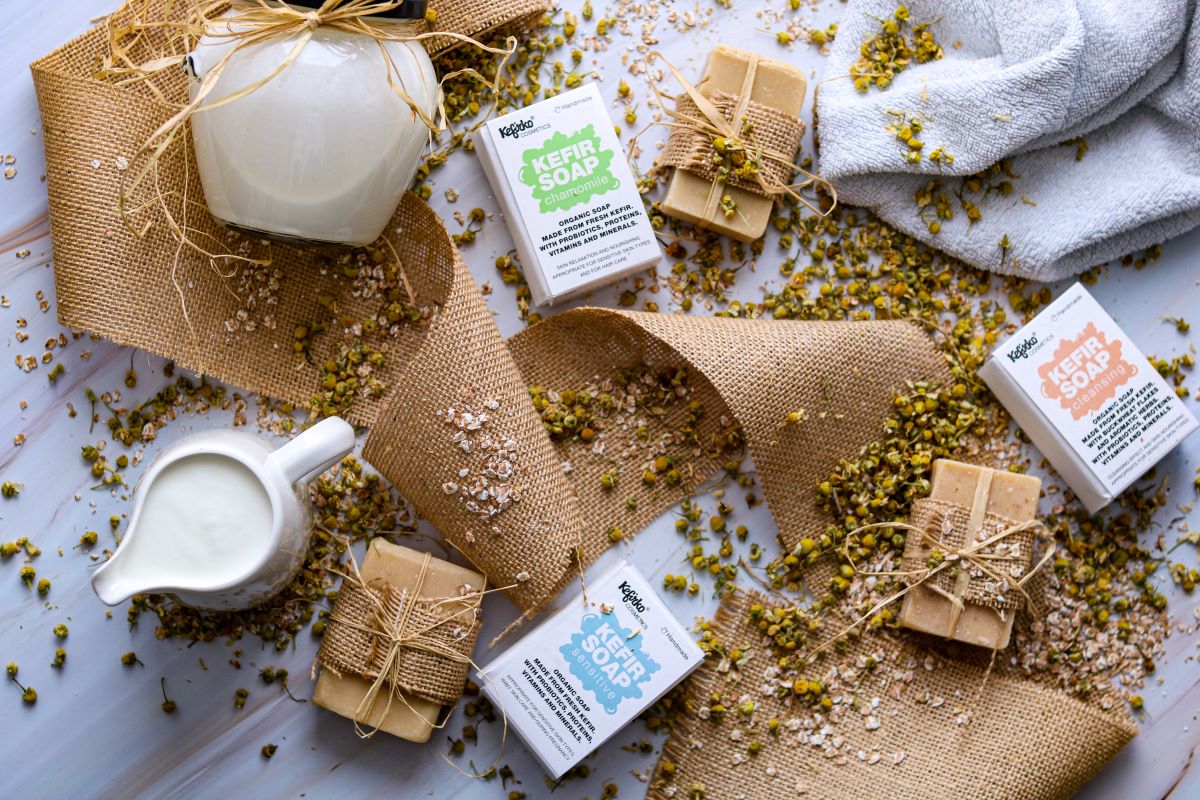
Kefir soaps can help us to build back our skin’s natural defenses and healthy function.
The skin represents the largest organ in the human body. And as such, its main function is to act as a barrier to extrinsic factors including physical, chemical and microbial threats. Also, skin can indicate our internal issues. My skin showed my internal “gluten overload” with Dermatitis herpetiformis. That is a skin condition linked to coeliac disease. Typical symptoms are: red, raised patches, often with blisters that burst with scratching, severe itching and often stinging, for instance. Hence strict gluten free diet rich in homemade probiotics (homemade kefir) is only option for my guts and for my skin.
I’m delighted to have an opportunity to use handmade Kefirko soaps. Especially since they are gluten free and made with homemade kefir.
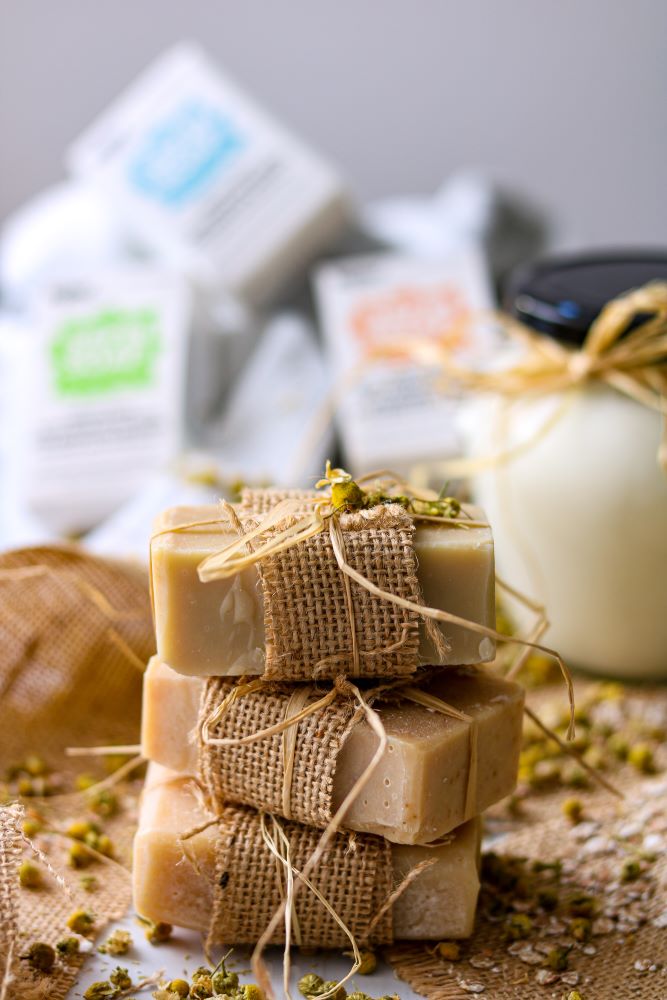
Kefirko with three types of kefir soaps:
Kefir sensitive soap
There are no chemicals, essential oils or artificial colors in this soap therefore it is exceptional for baby skin care and during pregnancy.
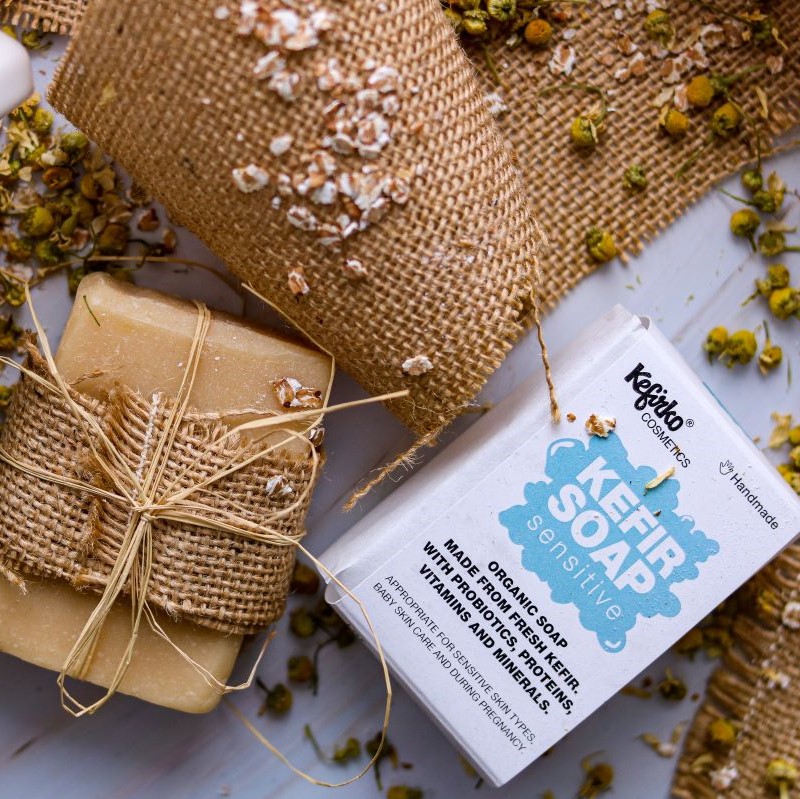
Kefir cleansing soap with buckwheat flakes
Rosemary essential oil has positive effects on blood circulation and antiseptic properties. Sage essential oil provides antifungal and antibacterial benefits and buckwheat flakes are great for gentle skin exfoliation. Also, what is important for me, buckwheat is gluten free.
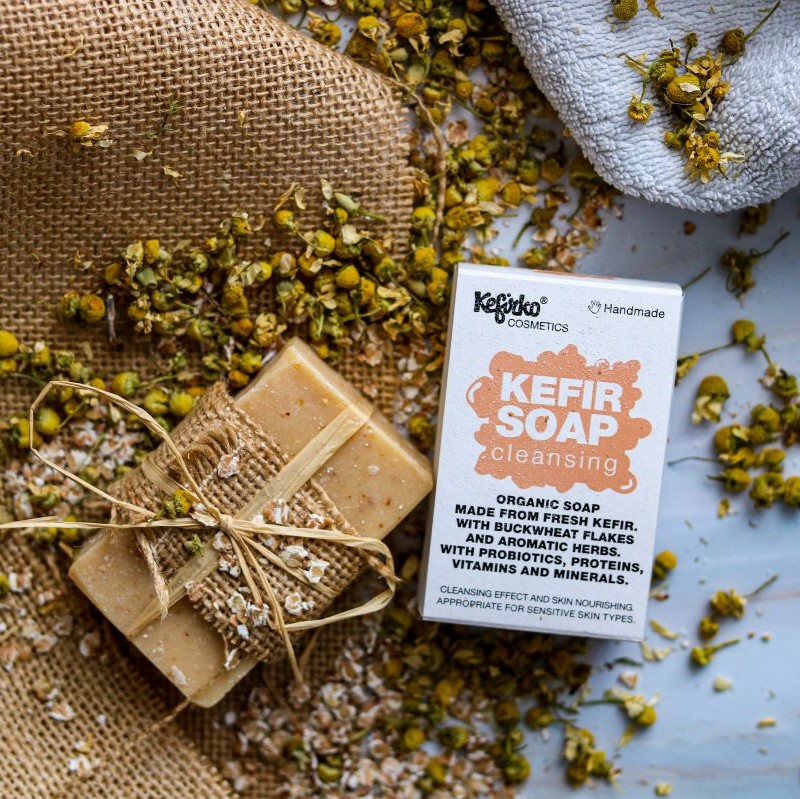
Kefir chamomile soap
Chamomile essential oil soothes the skin and provides nourishment and softness.
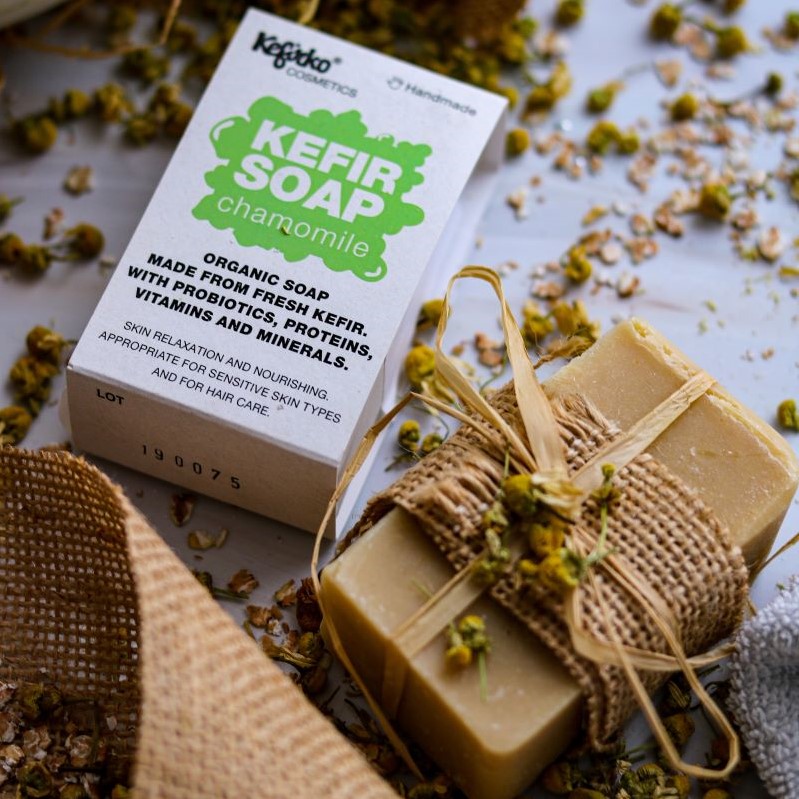
My skin just love all types of Kefirko soaps.
And what soap(s) will you choose?
Vedrana from Kefirolicious.com shared her experience and wrote this article.
Sources:
Why Probiotic Skin Care Is Worth The Hype, According To Experts
Dermatitis Herpetiformis
Functional Role of Probiotics and Prebiotics on Skin Health and Disease


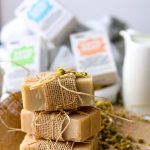
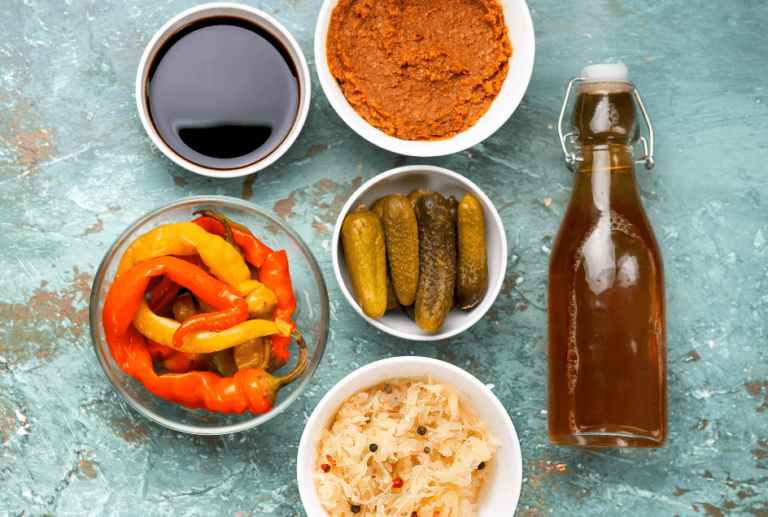
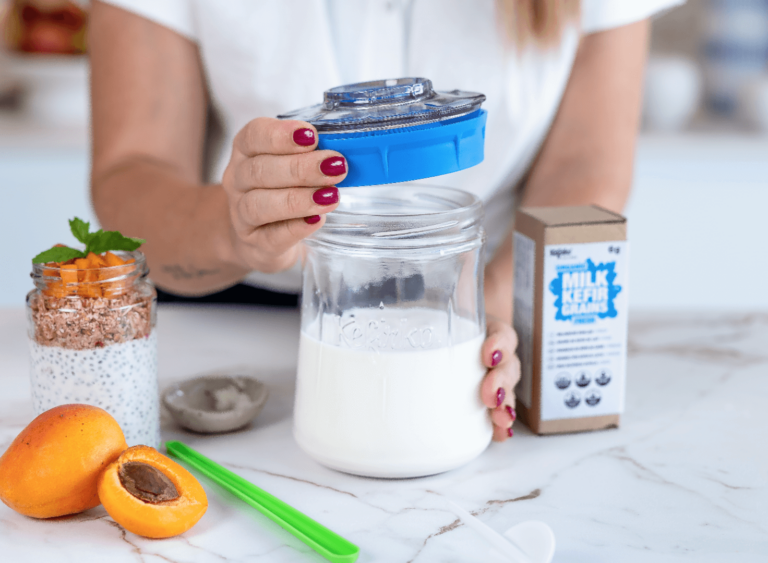
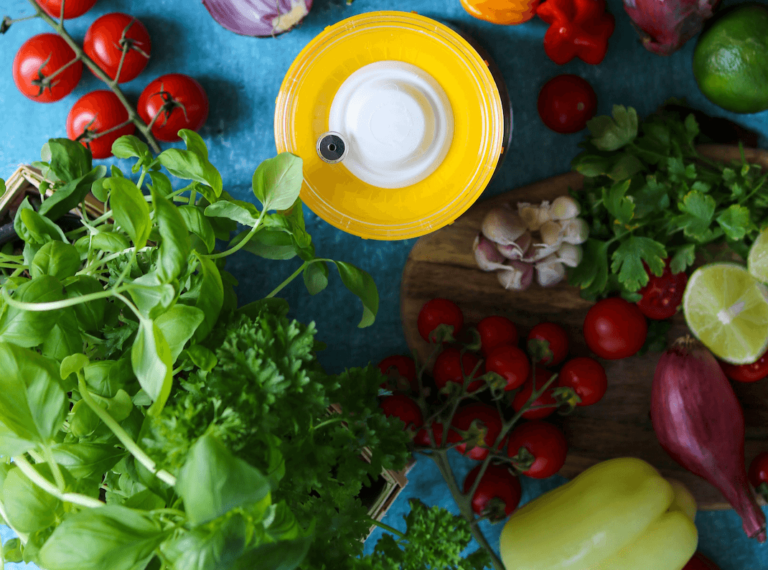
Hmm, I was expecting recipes. Can I find the recipes somewhere, been making my own kefir for a few years
Hi. Good idea but I am just wondering what kefir benefits is left in the soap?
I’ve read anything above 80°F / 26°C kill the grains, meaning all the good pro biotic bacteria die also while heating the soap mix. The grains are in a bar of soap, and dead, so what nutrients are really remaining?
Mark
Hi Mark!
Our soaps are made with special procedure where the milk kefir does not heat up above 38°C, the positive bacteria can survive up to 40 °C.
Kind regards, Kefirko team